I bought a pack of pork shoulder steaks and decided I wanted to make kebabs...I just needed to decide on a marinade! After much discussion, I went for Korean flavours to make this Korean pork kebabs recipe! Using the majority of the sauce ingredients from our slow cooker korean pulled chicken recipe to make the marinade, the pork turns out lovely and tender with a lovely warmth and spice.
The kebabs can be cooked on the barbecue if the weather's being kind and under the grill if it's not!
It's a quick dish to prepare and cook, with a pretty short marinating time in between, and great to enjoy as a selection of barbecued food with salads, breads and sauces, or with some stir-fried rice and vegetables.
Tips
- Gochujang is a hot/sweet fermented condiment from Korea – if you can’t find it in your local supermarket or South Asian grocers, use a fermented black bean paste or umami paste.
- This Korean pork kebabs recipe is easily adapted if you’re cooking for less or more people.
Recent New Recipes
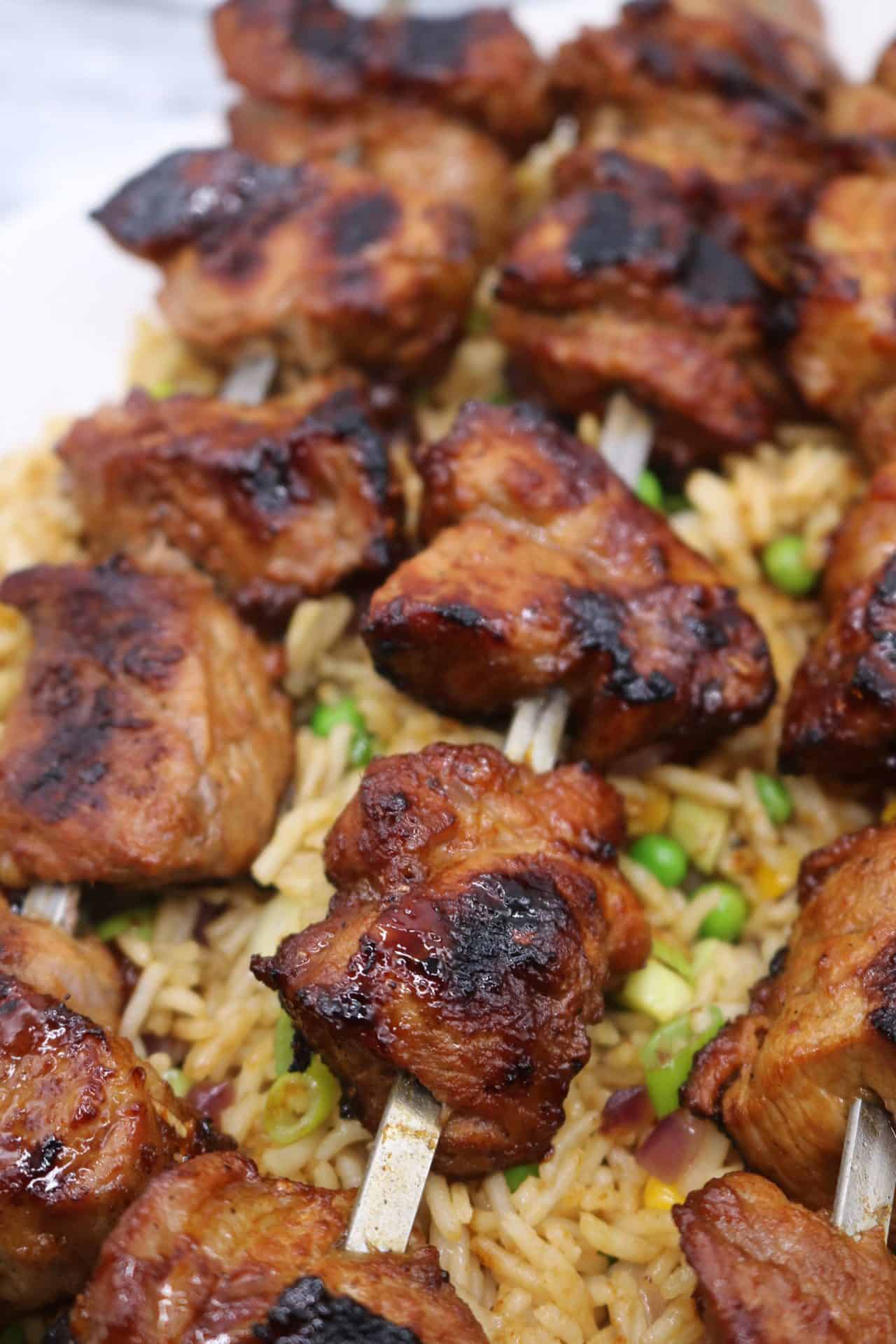

Category Spotlight...
BEEF
Burgers, pastas, stews, meatballs, pies...and so much more to discover in the beef category. Oh...and they're all full of flavour and delicious too!!
How to make these Korean Pork Kebabs
Ingredients
- 4 pork shoulder steaks, each steak cut into 6 chunks
For the marinade:
- 30ml gochujang (see Tips)
- 30ml soy sauce
- 2 cloves garlic, crushed
- 25g piece of ginger, peeled (or skin left on for extra warmth) and grated
- 1.5 tbsp mirin
- 20g soft light brown sugar
- 0.5 tsp sesame oil
- a few grinds of freshly ground black pepper
Instructions
- Mix all the marinade ingredients in a bowl or large sandwich bag and add the chunks of pork. Marinate in the fridge for 1 to 3 hours.
- Heat the BBQ or grill to high. Thread 6 cubes of pork on to 4 long metal skewers, leaving a slight gap (about 1cm) between each chunk, so that they cook evenly. Cook on the BBQ or under a hot grill for 10 to 12 minutes, baste with any spare marinade and turn 3 times at regular intervals, until cooked through.
- Enjoy as a selection of barbecued food with salads, with flatbreads or with some stir-fried rice and vegetables.


Recipe Collection Spotlight...
7 HEARTY AND COMFORTING RAGUS
Ragu is a traditional Italian sauce typically made from meat, vegetables, and tomatoes, slow cooked to develop rich flavours. It often serves as a base for pasta dishes, with the sauce being celebrated for its hearty and comforting qualities, making it a staple in Italian cuisine. Check out this delicious collection of 7 Hearty and Comforting Ragus:
Did you make this recipe?
I’d love to hear how it went…both good and bad!
Please go to the bottom of the page to rate the recipe and/or leave your comments.
⭐⭐⭐⭐⭐
It would also be great if you could take a photo and tag #FellyBull on social media, thanks.
Subscribe to receive our new and highlighted recipes in your email inbox each week...plus receive our new e-Cookbook for free!!!
✉️
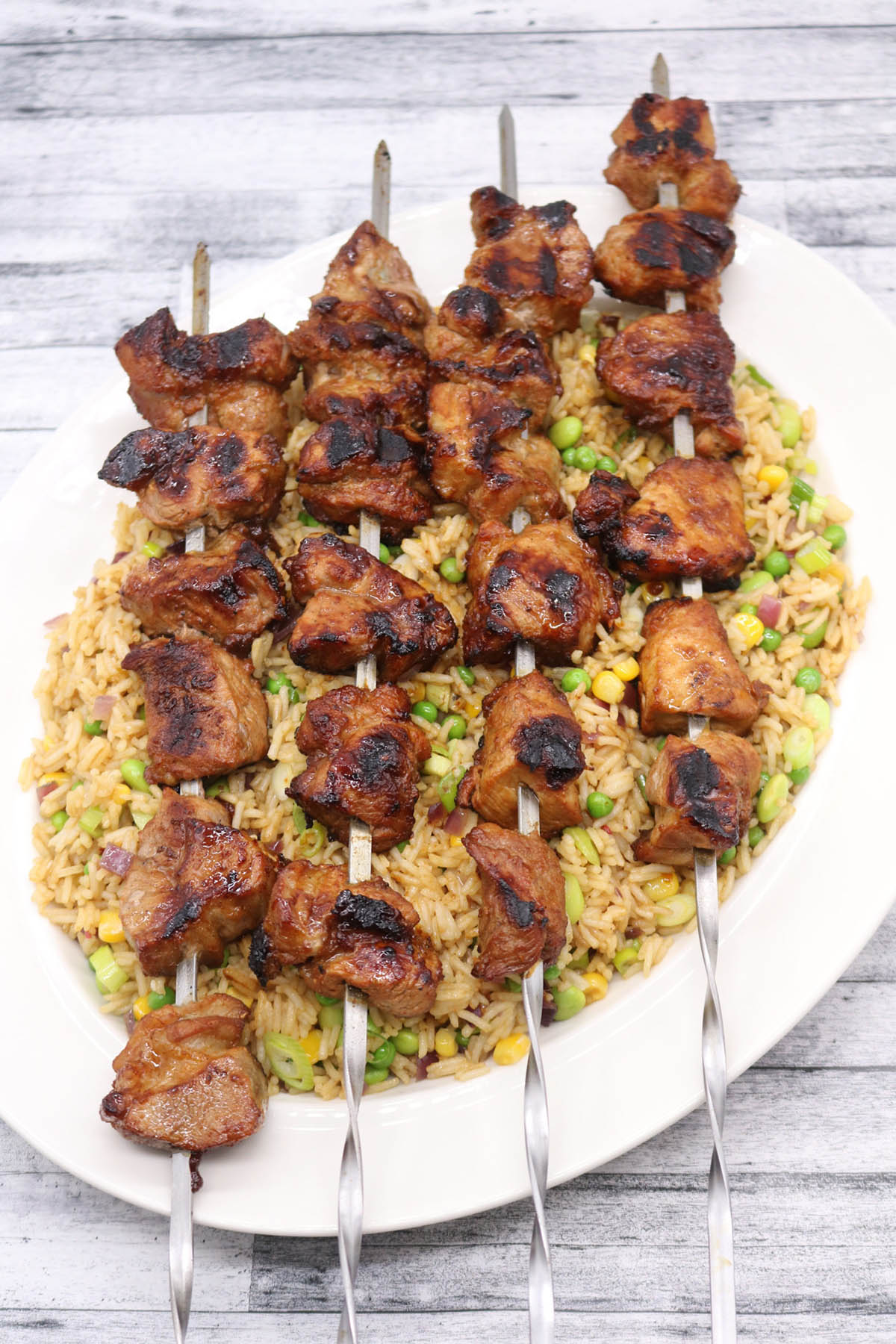
Korean Pork Kebabs
Ingredients
- 4 pork shoulder steaks each steak cut into 6 chunks
For the marinade:
- 30 ml (2 tbsp) gochujang (see Notes)
- 30 ml (2 tbsp) soy sauce
- 2 cloves garlic crushed
- 25 g (0.9 oz) piece of ginger peeled (or skin left on for extra warmth) and grated
- 1.5 tbsp mirin
- 20 g (0.7 oz) soft light brown sugar
- 0.5 tsp sesame oil
- a few grinds of freshly ground black pepper
Instructions
- Mix all the marinade ingredients in a bowl or large sandwich bag and add the chunks of pork. Marinate in the fridge for 1 to 3 hours.
- Heat the BBQ or grill to high. Thread 6 cubes of pork on to 4 long metal skewers, leaving a slight gap (about 1cm) between each chunk, so that they cook evenly. Cook on the BBQ or under a hot grill for 10 to 12 minutes, baste with any spare marinade and turn 3 times at regular intervals, until cooked through.
- Enjoy as a selection of barbecued food with salads, with flatbreads or with some stir-fried rice and vegetables.
Notes
- Gochujang is a hot/sweet fermented condiment from Korea – if you can’t find it in your local supermarket or South Asian grocers, use a fermented black bean paste or umami paste.
- This Korean recipe is easily adapted if you’re cooking for less or more people.
You might also like to try:
Nutrition
Nutrition information is automatically calculated, so should only be used as an approximation.

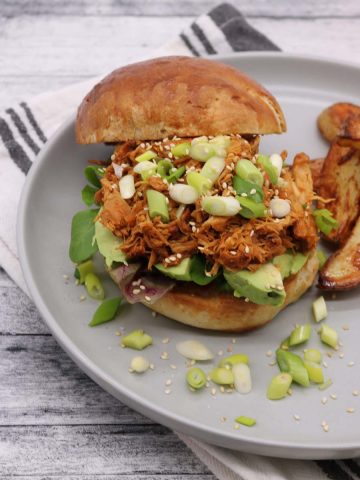
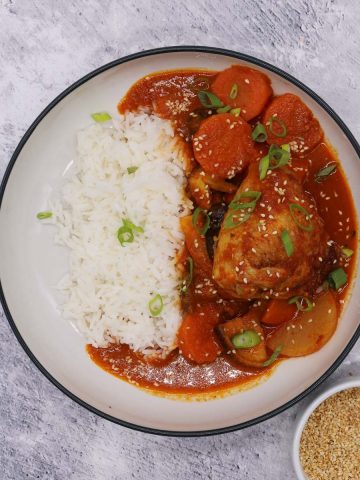
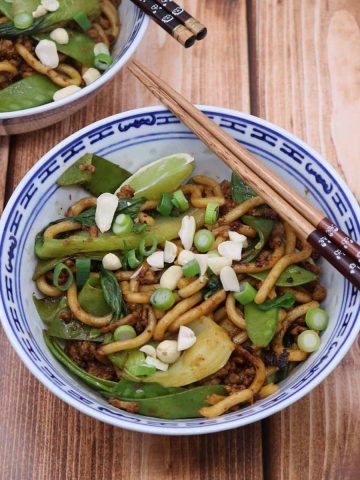

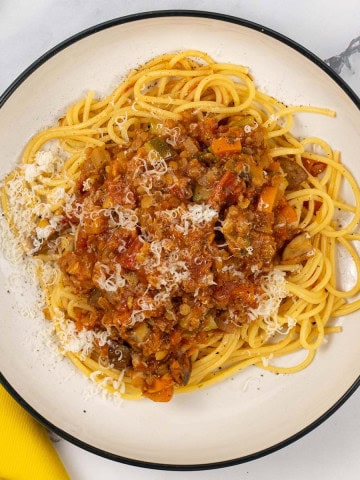






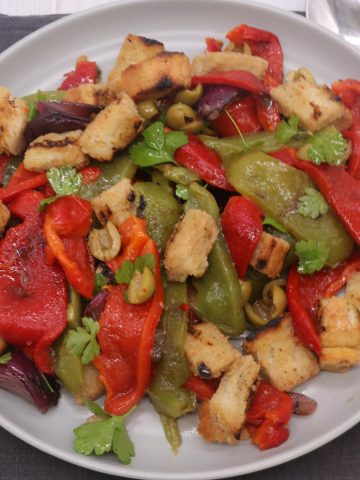




LEAVE A COMMENT AND RATE THIS RECIPE